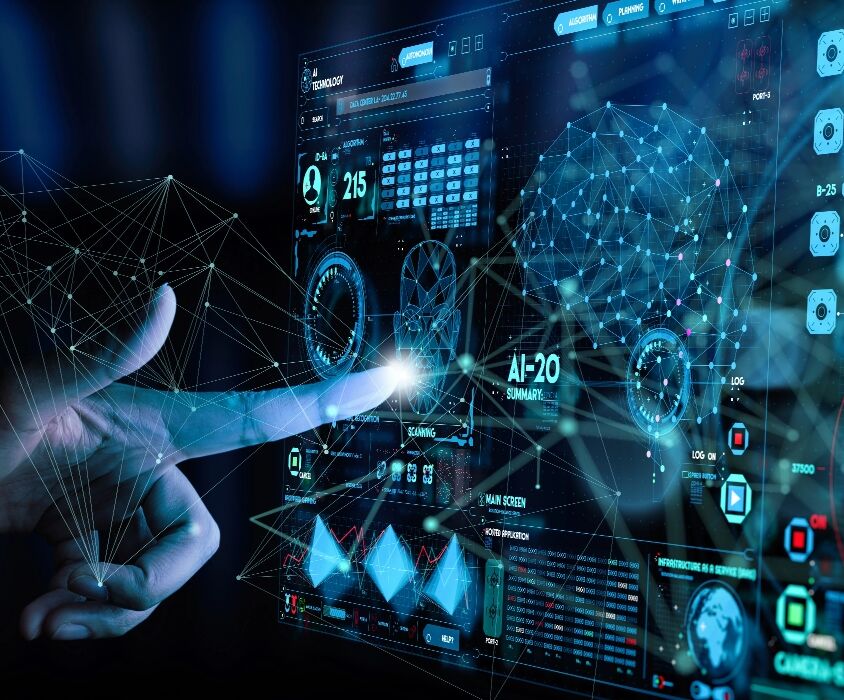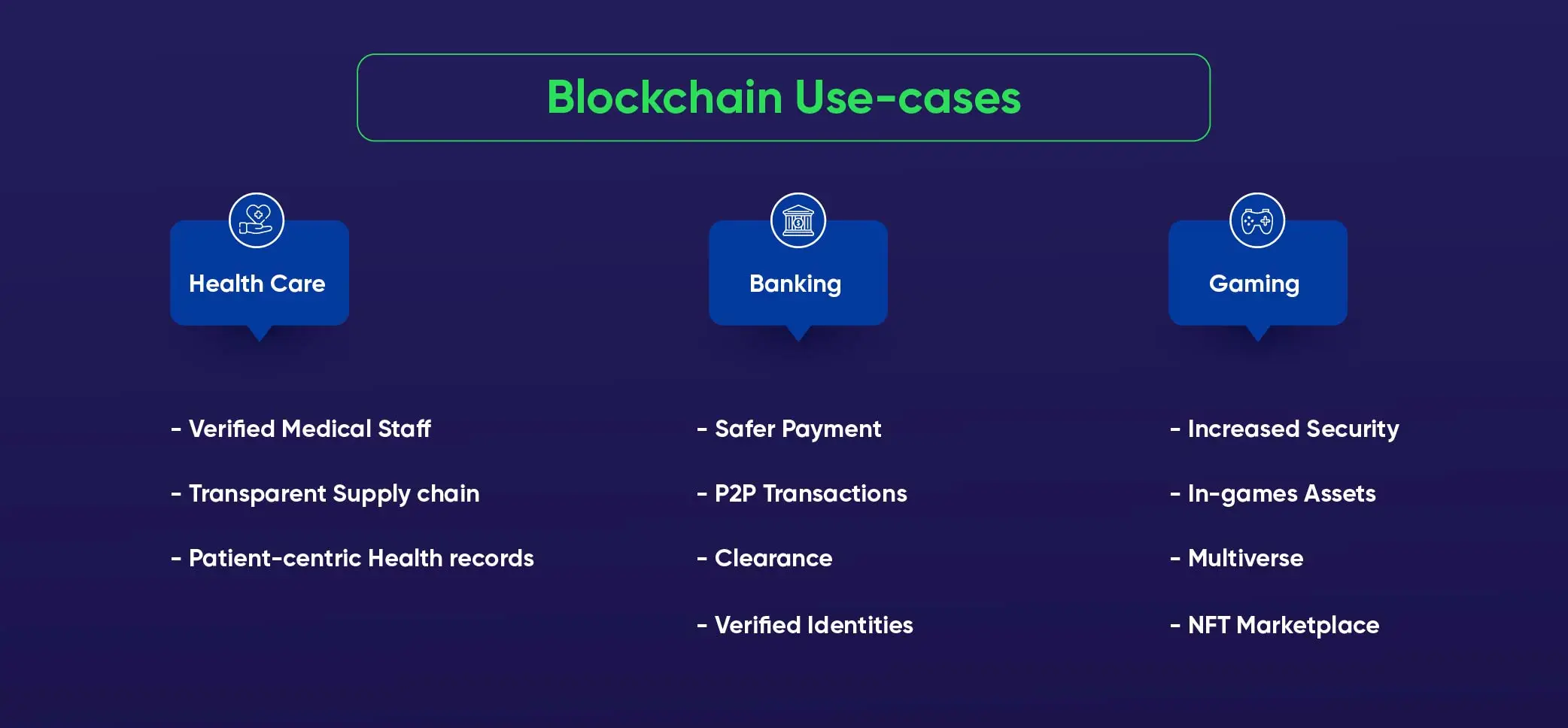
Introduction
Blockchain & Web3 Services Trusted By Leaders
- Develop innovative solutions using our state-of-the-art blockchain expertise.
- Achieve accelerated growth with robust & scalable Web3 consulting.
- Unlock 360-degree security with our top-rated blockchain development.
Use Cases & Top Challenges Of Blockchain Technology In The Gaming Industry
When you hear the word ‘blockchain’ you probably think of cryptocurrency networks, because that technology made cryptocurrency possible. It is a distributed record of transactions that are secured using complex algorithms and cryptography. This makes it much more difficult to corrupt than a centralized database and provides a number of benefits. From food supply chains to online voting systems, it is proving to be a relevant technology in more ways than one. There are several companies that are already using this technology in their day-to-day decisions. Distributed Ledger is here to stay, as it is reshaping everything from gaming to the healthcare industry.
Use Cases of Blockchain in the Gaming Industry
Ownership of In-Game Assets:
-
Problem Addressed
In the traditional gaming ecosystem, the authenticity and rarity of in-game assets are often questionable, leading to a lack of trust among players and potential fraud.
-
Blockchain Solution
Leveraging blockchain technology, game developers can issue non-fungible tokens (NFTs) to represent in-game assets. Each NFT is unique, cryptographically secure, and stored on a blockchain, providing an immutable record of an item’s history and ownership.
-
Benefits
-
- Verified Authenticity: Players can confidently verify the authenticity of their in-game assets, eliminating concerns about counterfeit or duplicated assets.
- Enhanced Rarity and Value: NFTs introduce a genuine sense of scarcity, elevating the perceived value of certain in-game assets and fostering a collector’s mentality among players.
Decentralized Gaming Platforms:
-
Problem Addressed
Traditional gaming platforms are centralized, leading to issues of censorship, lack of user autonomy, and potential abuse of power.
-
Blockchain Solution
Implementing blockchain enables the creation of decentralized gaming platforms where smart contracts govern various aspects of the gaming experience, including transactions, rules, and community governance.
-
Benefits
-
- Increased Player Autonomy: Players have more control over their gaming experience, as decisions are made through transparent and democratic processes facilitated by smart contracts.
- Reduced Dependency on Central Authorities: Eliminating a central authority reduces the risk of arbitrary decisions and censorship, fostering a more inclusive and player-centric gaming environment.
Cross-Game Asset Interoperability:
-
Problem Addressed
Traditional gaming silos prevent players from using their in-game assets across different games or platforms.
-
Blockchain Solution
Blockchain introduces standardized tokenization of virtual assets, allowing players to use and trade their assets across various games that adopt the same blockchain standards.
-
Benefits
- Enhanced Player Experience: Players can seamlessly carry their virtual possessions across multiple gaming universes, promoting a more immersive and interconnected gaming experience.
- Thriving Secondary Market: Standardized tokenization facilitates a secondary market for virtual assets, encouraging trading and creating new economic opportunities for players.
Secure and Transparent Digital Rights Management (DRM):
-
Problem Addressed
Traditional digital rights management (DRM) systems face challenges of piracy, unauthorized copying, and unclear ownership of digital game content.
-
Blockchain Solution
Utilizing blockchain for DRM ensures secure and transparent ownership records, reducing the risk of piracy and providing clear rights to both content creators and consumers.
-
Benefits
- Anti-Piracy Measures: The immutable nature of blockchain records makes it significantly more difficult for unauthorized copying and distribution of digital game content.
- Fair Compensation: Content creators can have confidence in receiving fair compensation for their work, and players gain a clearer understanding of their ownership rights.
Reward Systems and Tokenized Economies:
-
Problem Addressed
Traditional reward systems lack transparency, and players often do not have true ownership of their in-game rewards.
-
Blockchain Solution
Introducing blockchain to tokenize in-game rewards and currencies provides players with verifiable ownership and transparent reward systems.
-
Benefits
- Trust and Transparency: Players can trust the authenticity of their rewards, and the transparency of blockchain enhances the overall trust within the gaming community.
- Monetization Opportunities: Tokenized rewards open up possibilities for players to trade, sell, or monetize their in-game achievements, creating a more dynamic and player-centric economy.
Difference Between Traditional and Blockchain Gaming
Before diving into the challenges of blockchain that the gaming industry is facing, one should get an idea about how Traditional gaming differs from Blockchain gaming.
Traditional Gaming |
Blockchain Gaming |
| Cannot own in-game assets | Sell & buy in-game assets |
| Game tokens cannot be sold Data opacity | Play2earn game |
| Unfair & unjust gaming | Fair & just gaming |
| High transaction cost | Low cost & quick payments |
| No virtual property | Virtual property related to real-world Smart contract |
| No control over the game | Trusted data security |